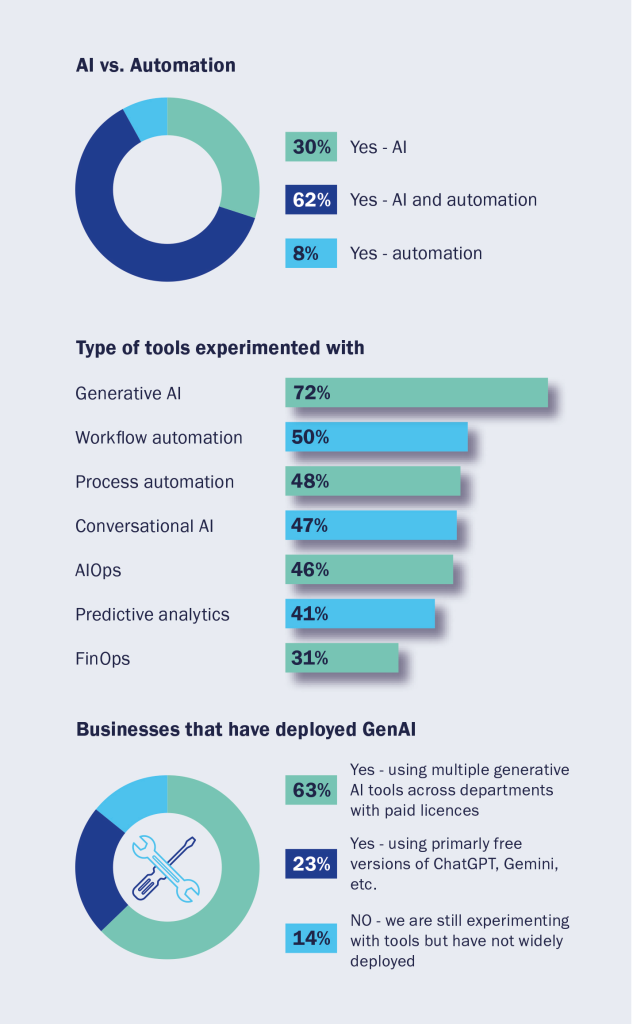European enterprises are rapidly deploying Artificial Intelligence (AI) and automation technologies, with 92% of organisations having implemented these solutions over the last two years, according to new research from Digitate, a leading provider of AI-powered software for IT and business operations.

However, the report, The race to outpace: How AI and automation are driving European enterprises across the finish line, looks at the state of enterprise AI and automation adoption, challenges and risks, and implementation concerning future outlook, suggests that while adoption is widespread, many organisations are still working to develop comprehensive strategies for these technologies.
The study, which surveyed 900 IT decision-makers across seven European countries, found organisations have invested an average of €103.4 million into AI and automation implementations over the last two years, with over half (59%) spending up to €295 million.
These investments are yielding significant returns, with 86% of organisations reporting ROI averaging €154.7 million.
“European enterprises clearly recognise the transformative potential of AI and automation, particularly in addressing their most pressing operational challenges,” said Ritu Dubey, Head of New Business Sales and Market Development, Digitate. “However, the research indicates that many organisations are implementing these technologies on a departmental basis rather than as part of an integrated vision. To maximise the value of these substantial investments, enterprises need to develop more comprehensive strategies.”
Key findings from the research include:
- Time savings (60%), greater efficiency (57%) and increased productivity (55%) are the primary benefits organisations have realized from AI and automation implementations
- IT operations is the leading area for deployment, with 81% of organisations using automation and 62% using AI in their IT departments
- 94% of organisations plan to change their cloud strategy over the next 2-3 years, with 54% transitioning to a multi-cloud strategy
- Organisations expect a dramatic shift toward autonomous operations in the next five years, with the number of companies using automation that learns and adapts with minimal human input projected to more than double from 7% to 20%
Despite the enthusiasm for these technologies, organisations face several challenges in implementation. Budget constraints and lack of technical skills (both 29%) are the top obstacles, followed by data collection and management issues (28%). Additionally, 43% of organisations report that their current implementations still require more human intervention than desired.
The research revealed notable regional variations in adoption and implementation:
- Finland leads in Generative AI adoption with a 98% deployment rate
- UK organisations particularly struggle with technical skills gaps, citing this as their primary obstacle above budget constraints
- French companies show more caution, with 24% reporting they have not yet widely deployed generative AI tools – the highest percentage among surveyed countries
Looking ahead, 78% of respondents plan to implement additional AI or automation within the next two years, with 40% aiming to have new tools in place by the end of 2024. The focus areas for future deployment include IT operations (74%), cybersecurity (56%) and network monitoring (39%).


